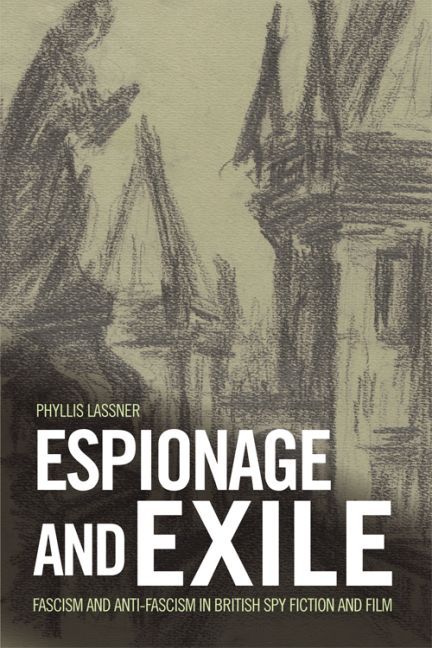Book contents
3 - Leslie Howard: Propaganda Artist
Published online by Cambridge University Press: 12 September 2017
Summary
British born, of Hungarian Jewish descent, Leslie Howard became a Hollywood star during the 1930s. Celebrated for performing ‘sophisticated comedy’ as well as ‘the tragic hero of romances’ like Of Human Bondage (1934) and Intermezzo (1939), he also endowed the character of ‘the thinking men who find a cause’ with a combination of selfeffacing irony, political passion and otherworldliness. The range of his Hollywood roles included the dashing double-faced Scarlet Pimpernel (1935), the brilliant and quirky Henry Higgins in Pygmalion (1938) and the erotically challenged Ashley Wilkes in Gone with the Wind (1939) (a role he hated). Howard's screen persona as witty, elegant if absentminded intellectual won him critical and popular acclaim on both sides of the Atlantic. His success afforded him a glamorous and comfortable life in both Los Angeles and New York, but in 1938, after the Munich debacle, he made the crucial decision to return to Britain and did so a week before war was declared. His artistry was thereafter shaped and defined by his political activism.
Howard's career as propaganda artist came to a tragic end when his civilian aeroplane was shot down over the Bay of Biscay by the Luftwaffe on 1 June 1943. As Estel Eforgan reports, Howard's son Ronald felt that by 1940, his father had ‘become a “V-Personen”’, the Germans’ term for unofficial spy (In Search, 127). Gossip intensified this rumour, especially as lurid accounts about Howard's affair with a ‘mysterious female spy’ were circulating (127). Eforgan's rigorous research and analysis dispel these stories, leading her to conclude that ‘No evidence has ever connected Leslie Howard to any intelligence agency’ (127). Nonetheless, even without such connections, Howard had supporters in the British government who substantiated his film treatments of Nazi Germany's plans for world conquest.
With fervent belief in the propaganda power of film and radio, Howard offered his services to the war effort. He worked with the Ministry of Information, the government agency ‘whose prime duty on the home front was to sustain civilian morale’ through ‘the release of official news; security censorship of the press, films and the BBC […] the conduct of publicity campaigns for other departments; and the dissemination of propaganda to enemy, neutral, allied and empire countries’ (McLaine 1, 3).
- Type
- Chapter
- Information
- Espionage and ExileFascism and Anti-Fascism in British Spy Fiction and Film, pp. 118 - 165Publisher: Edinburgh University PressPrint publication year: 2016



